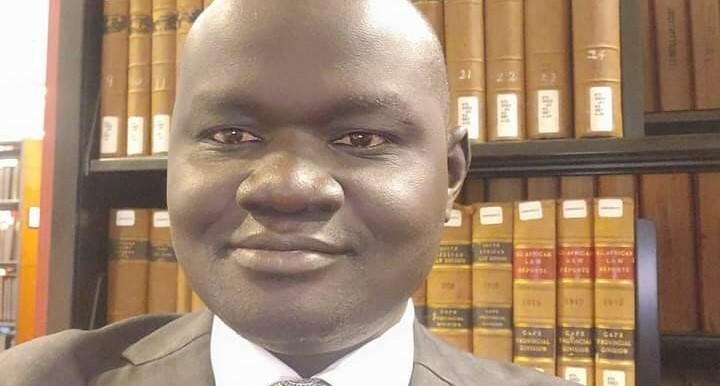The persistent issue of unpaid salaries of civil servants by the Government of South Sudan is not a recent occurrence; it has been ongoing since the inception of this government in 2006. Rampant corruption has plagued the administration, resulting in the misappropriation of significant portions of the oil revenue meant for developmental purposes.
Instead, these funds have been siphoned by a cabal within the SPLM leadership, leaving civil servants unpaid for extended periods.
Despite the substantial non-oil revenue generated from the Nimule border and Juba that is more than sufficient to cover civil service salaries, these funds have been diverted by the same corrupt individuals. This clique prioritizes personal gain over the welfare of the civil service, leaving them without pay. Adding insult to injury, certain SPLM officials unlawfully receive advanced salaries, contravening established legal provisions.
Recent designations by Transparency International further underscore South Sudan’s dubious distinction as the most corrupt nation globally. In light of these egregious violations and ongoing malfeasance, I am compelled to take legal action against the Government of South Sudan. I aim to ensure that the rights of civil servants are duly respected and protected.
This legal recourse is a necessary step towards holding the government accountable for its actions and demanding justice for civil servants who have been unjustly deprived of their rightful wages. We must uphold the rule of law and combat corruption to safeguard the interests of all citizens and promote transparency, accountability, and good governance.
I am resolute in my commitment to pursuing this case to its fullest extent, advocating for the rights and well-being of civil servants and striving for a South Sudan where justice, integrity, and the rule of law prevail.
As an Advocate for Human Rights and Justice, I have undertaken the solemn responsibility of initiating legal proceedings against the Government of South Sudan. The grounds for this legal action stem from the systematic violations of human rights endured by civil servants within the nation. It is with a deep sense of duty and moral obligation that I present this case before the African Commission on Human and Peoples’ Rights, a revered regional human rights tribunal, on behalf of those who have suffered egregious injustices.
The conduct of the Government of South Sudan, particularly in its treatment of civil servants, has resulted in severe ramifications for the nation’s populace. Civil servants, essential pillars of society entrusted with the provision of critical services, have been subjected to prolonged deprivation of their salaries, a fundamental breach of their rights. Moreover, their attempts to express grievances through peaceful assembly have been met with excessive force, including the deployment of armed personnel to suppress dissent.
The deleterious effects of these actions are manifold, manifesting in deteriorating service delivery, rampant corruption, institutional decay, and widespread maltreatment of the civilian populace. Sectors such as public health, education, and the judiciary have borne the brunt of these injustices, exacerbating the suffering of the citizenry.
Furthermore, the ominous warnings issued by government officials, explicitly threatening protesters with lethal force, serve as a chilling reminder of the government’s callous disregard for the rights and well-being of its citizens. Such brazen intimidation tactics have created an atmosphere of fear and repression, stifling dissent and perpetuating a culture of impunity.
This complaint represents not merely a legal endeavor, but a moral imperative. It is an assertion of the fundamental principles of justice, accountability, and respect for human dignity. It seeks to expose and challenge the government’s policies of economic deprivation and suppression of dissent, which stand in stark contradiction to the values of democracy, equality, and human rights.
The civil servants whom I represent are not only dedicated professionals but also citizens entitled to the full enjoyment of their rights. They are entitled to fair and timely remuneration, the freedom to express their opinions peacefully, and the right to participate in the democratic process. The government’s actions, however, have flagrantly violated these rights, constituting a grave affront to the rule of law and democratic governance.
This legal action is grounded in both domestic legislation and international human rights instruments to which South Sudan is a signatory. It invokes the principles enshrined in the South Sudan Civil Services Act, as well as the Universal Declaration of Human Rights, the International Covenant on Civil and Political Rights, the International Covenant on Economic, Social and Cultural Rights, and the African Charter on Human and Peoples’ Rights.
Furthermore, the Government of South Sudan’s failure to uphold its commitments under the Revitalized Peace Agreement of 2018, which includes provisions for the establishment of a Salaries and Remuneration Commission and the respect for human rights, underscores its blatant disregard for its obligations to its citizens and the international community.
In light of the government’s continued refusal to address these grievances and rectify the injustices perpetrated against civil servants, the regional human rights tribunal must adjudicate this matter swiftly and justly. The remedies sought include the immediate settlement of all outstanding salary arrears, the cessation of unlawful practices, and the establishment of robust mechanisms for the protection of human rights.
In conclusion, I call upon all stakeholders, both within South Sudan and the international community, to support this noble cause. The civil servants of South Sudan deserve better treatment, and it is incumbent upon us to ensure that their rights and dignity are upheld. Let us stand united in our pursuit of justice, accountability, and respect for human rights, and strive towards a future where the principles of democracy, equality, and peace prevail.
The writer is Kenyi Yasin Abdallah Kenyi, a South Sudanese Human Rights Lawyer, and he can be reached via: kenyiyasin@gmail.com
The views expressed in ‘opinion’ articles published by Radio Tamazuj are solely those of the writer. The veracity of any claims made is the responsibility of the author, not Radio Tamazuj.




